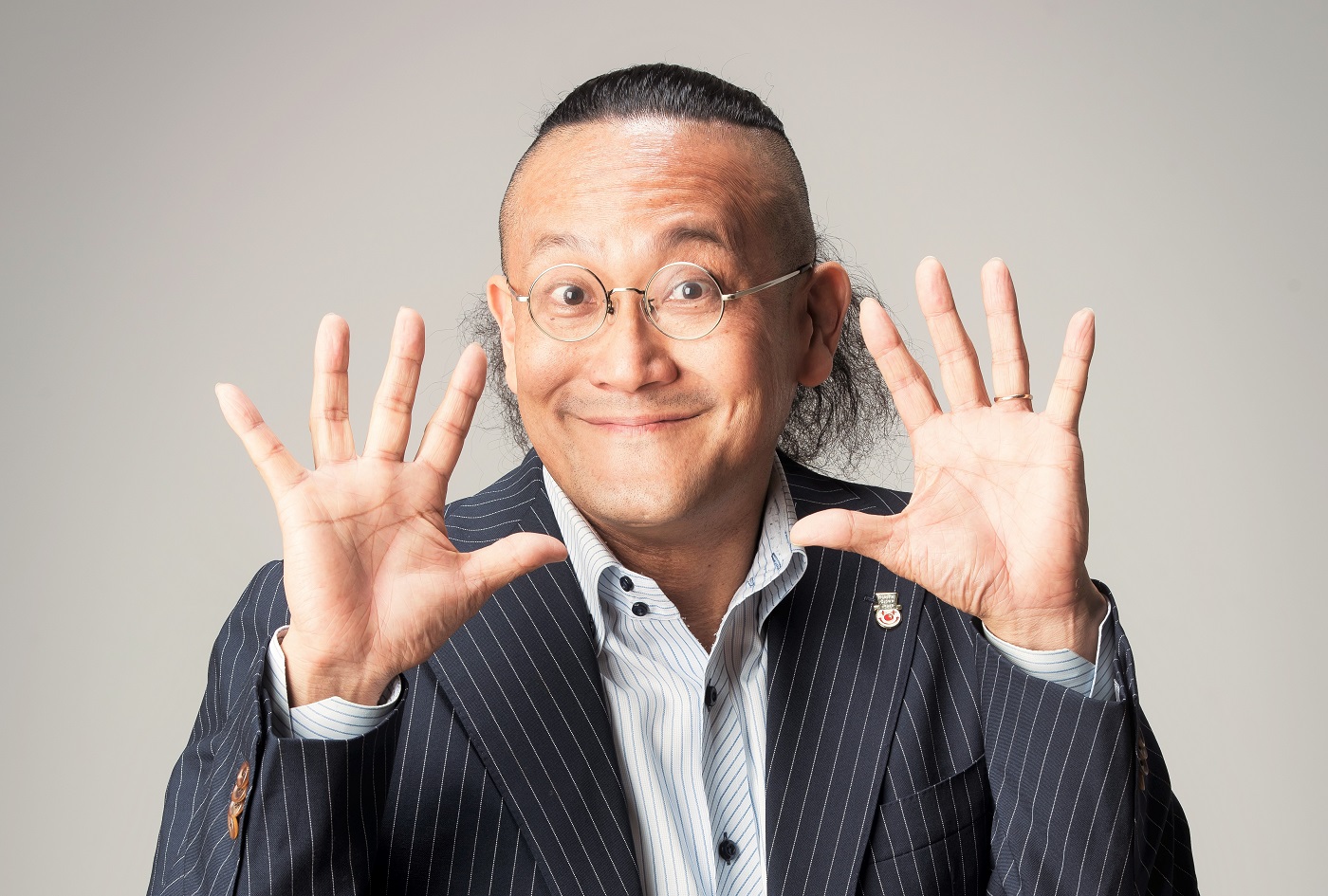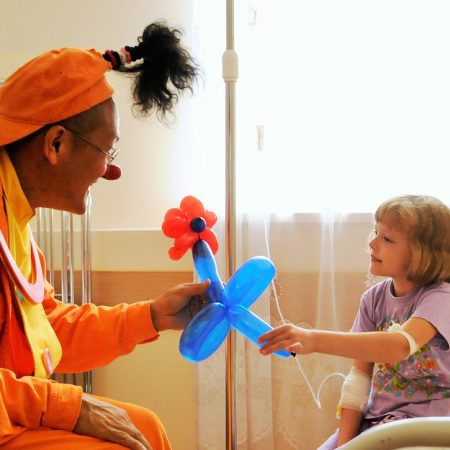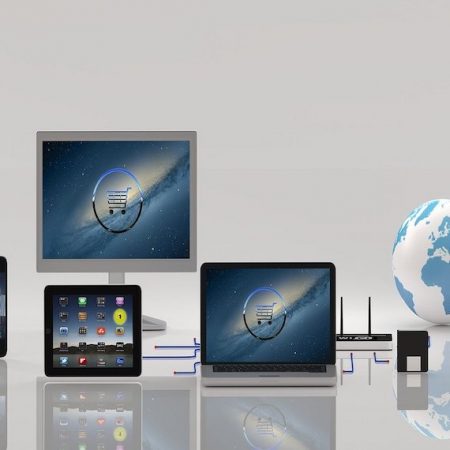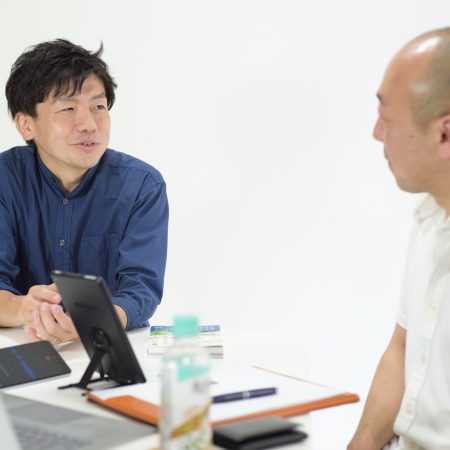SPECIAL
Making changes in the world and myself ―Interview with Kosuke Omune, a pioneer of hospital clowns in Japan
Mr. Kosuke Omune – The clown of the year (March 2021)
The founder of Pleasure Planning company, Mr. Kosuke Omune has been spreading positivity and joy to the sick children in hospitals. In 2004, Mr. Omune initiated the hospital clown activities with fellow clowns that share his same mindset. There are two main leadership qualities that make Mr. Omune a successful pioneer. First, he successfully balances between completing tasks and connecting with employees. For example, he ensures everyone shares the same vision, and at the same time improves his fellow staff members’ motivation. Second, he is an innovative team leader. During the Covid-19 pandemic, many businesses struggled and closed. However, he pivoted his services to go online. On top of that, he incorporated new elements in his online performances such as using chairs. Mr. Omune has been a successful pioneer because of his strong communication skills and perseverance in spite of any hardships and challenges.
This time we got a chance to interview him.
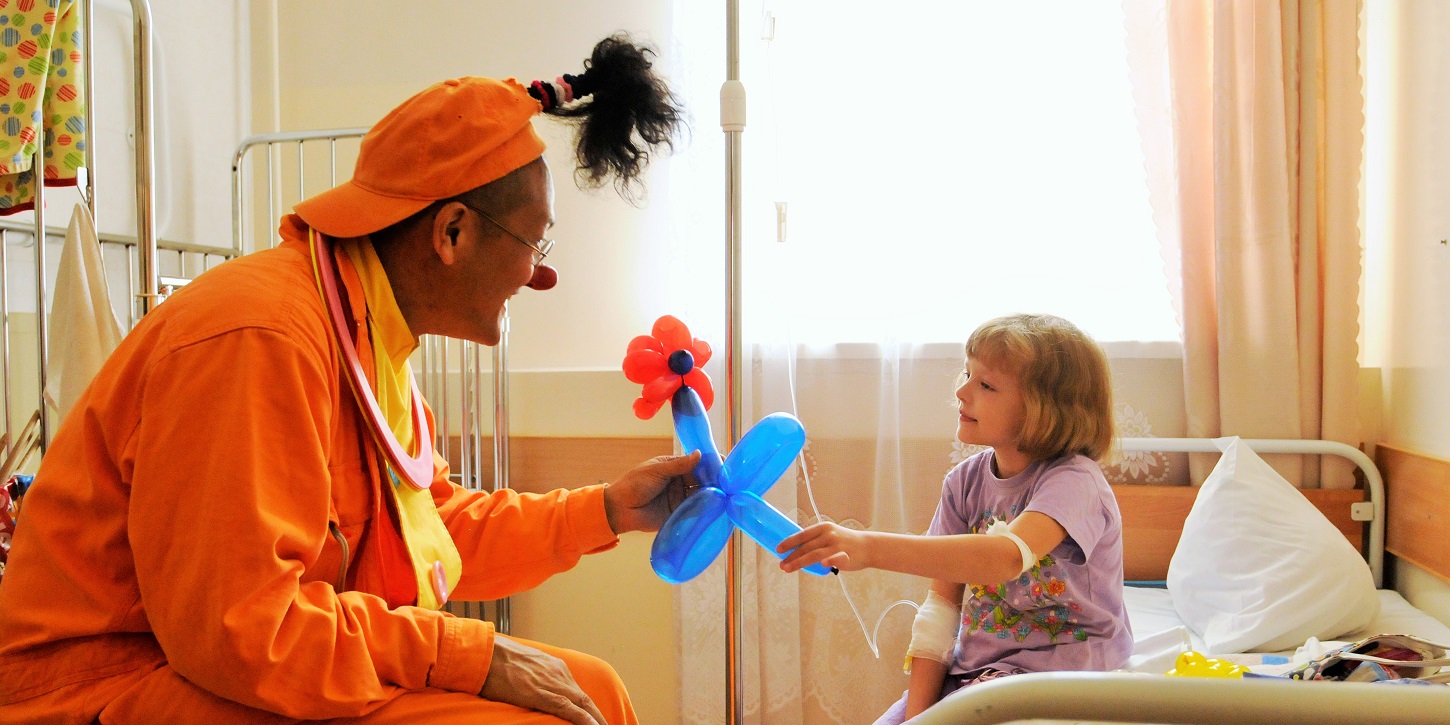
Changing my professional career to be a clown
Q: What made you decide to pursue your professional career as a clown?
Mr. Omune: I used to think that I was not good at entertaining people. Everyone in my family were teachers so I always thought that I had to be a “good boy”. I often saw myself through other people’s eyes and wasn’t someone who would be at the center of the class. After joining a railway company, I started to want to change myself and be a fun person who can entertain people. I didn’t become a clown because I wanted to, but instead, I became a clown to change my personality. It’s a very difficult job, and I still think that I am not good at acting as a clown, but one thing I learned is that personality doesn’t change easily. Now, I am able to understand and accept my real self. Also, I was able to acquire expressing skills by acting as a clown which enabled me to pretend that I am having fun. This made me feel like my personality has changed.
There is another reason besides changing my personality. While I was studying about being a professional clown, I found out that there was a market for hospital clowns. Being one requires money, time, skills, and knowledge of sanitation. I was the only one who completed all those requirements in Japan, and that led me to start.
Q: Your family were all teachers, and you also graduated from an education university, so probably people around you were expecting you to become a teacher. How were their reactions when you decided to become a clown?
Mr. Omune: Of course, my family wanted me to become a teacher, and my university professors also said that I was suitable for it. When I entered a railway company, my parents in shock said “Kosuke entered a private company!” I can’t forget what they said, but still it was a large company, so my parents were happy that my future was at least secure. When they heard I was going to quit, I’m sure that the news shocked, worried and disappointed them – in addition to giving them anxiety. But I was already decided by then. Also, parents are probably happier if their children enjoy their work rather than dragging themselves to work.
Training as a clown in the United States
Q: What was the most challenging part of training as a clown in the United States?
Mr. Omune: Language was one big challenge for me. I had to rely on gestures to understand others and express myself. I didn’t have big problems with terminology and speech, because I understood the meanings of the terms and memorized my script for speaking. But lectures and discussions were very tough for me. I guess I understood 30% of class content and even that includes 10% of misunderstandings, so actually I only understood about one-fifth of it. English was a big problem for me.
Still, I think choosing the United States for my destination was the correct choice. Different regions’ clowns have different characteristics. In Europe, clowns are considered artists so many people graduate art school, so studying to be a clown in Europe is very hard. On the other hand, in the United States, clowns are considered entertainers, so it is not difficult for diligent Japanese people to copy the skills because we are good with our hands.
The meaning of receiving awards
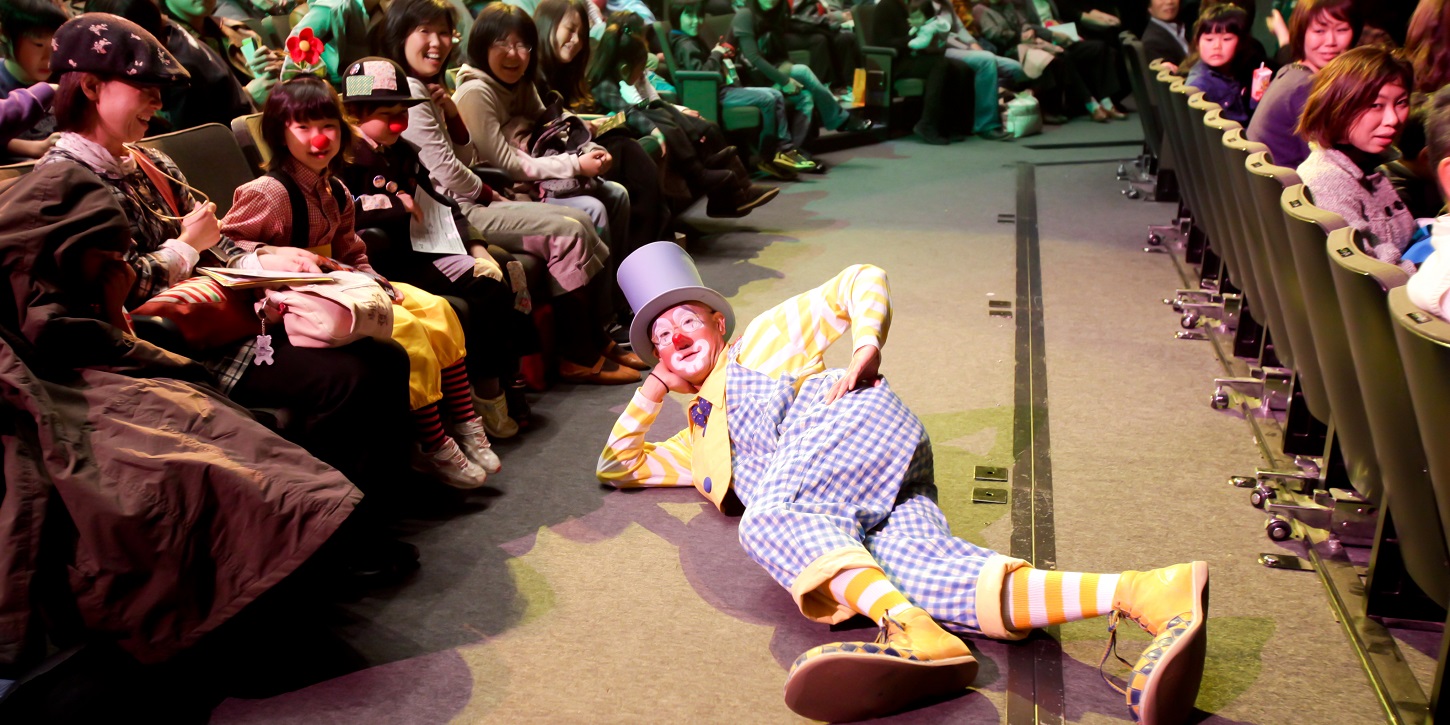
Q: What did it mean to you when you were honored as the Clown of the Year (March 2021)?
Mr. Omune: It’s a kind of branding. For example, if you see Matsuzaka-gyu (a kind of premium beef) and other meats being sold at the same price, probably a lot of people will choose Matsuzaka-gyu. Also, if there are multiple variations of the same food being sold but one of the options has received the gold prize, then we would clearly go for the prize-winner. For me, participating in a competition and receiving a prize was just like that.
Q: Were there any differences in your clown activities before and after receiving the awards?
Mr. Omune: Of course, there were many. The awards attract people who are finding performers and putting ‘World Champion’ on the flyer attracts audiences. They would see me as a world champion so even if I’m doing the same thing as the other performers, the audiences will think that I’m cooler. Also, there will be more interviews which are great opportunities to appeal myself.
“Sitting on a chair takes money, putting a chair on your head makes money”
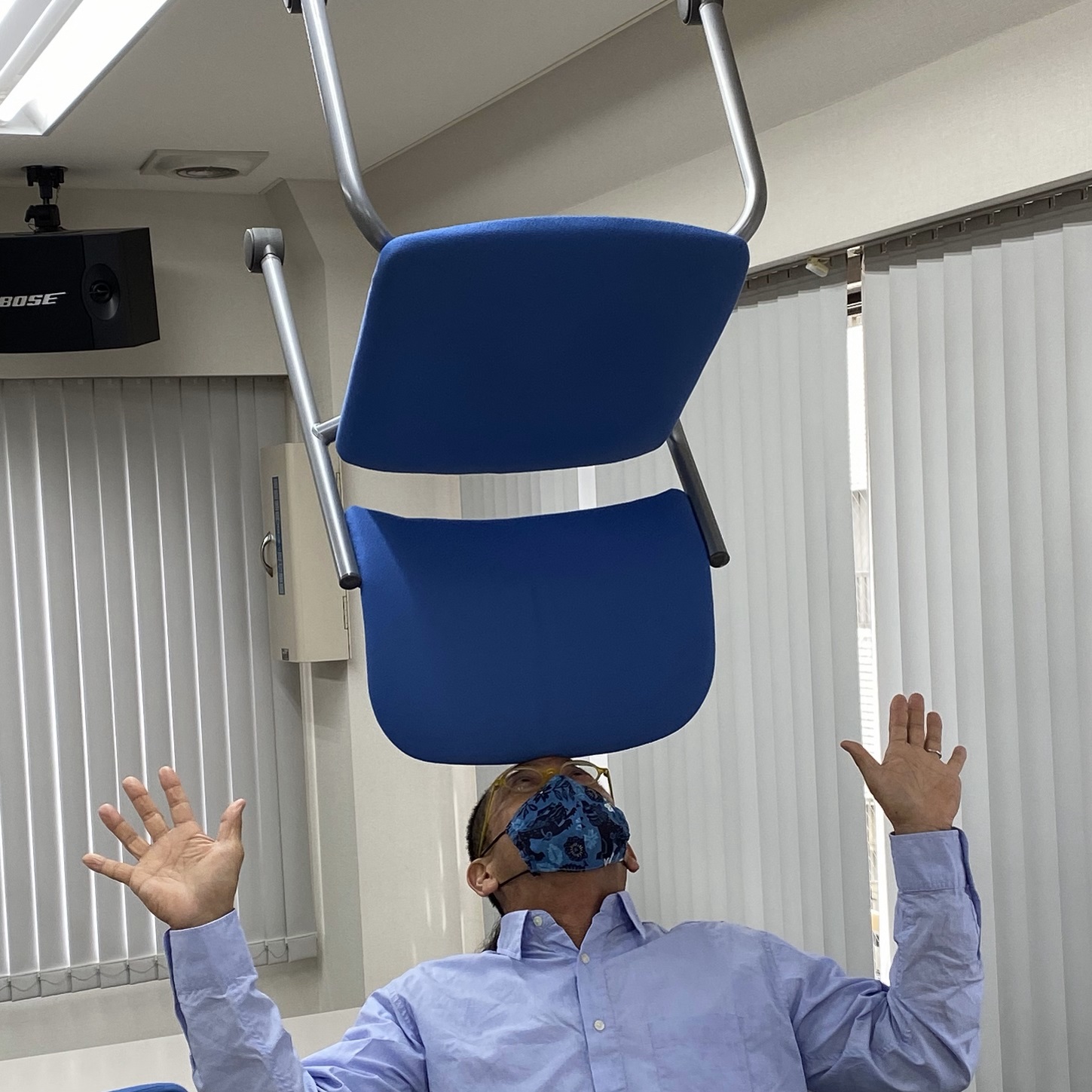
Q: What was the most challenging part of starting up your business Pleasure Planning?
Mr. Omune: There was nothing really challenging because I had prepared a lot before starting it. Or maybe it’s just that I have forgotten… I have one funny story. On the first day of opening my company, I waited for a whole day in front of the phone, but it didn’t ring. Then I realized that it was only me who knew that we existed. I totally forgot to promote my company. I burst out laughing when I realized.
My friend’s child was a student council president and the captain of a baseball team in junior high school. He was a talented, but when he was in his third year, he hadn’t decided his future path yet, so he asked me for advice. He was so stellar that there was nothing I could say, but I was drunk at that time, so I told him “Listen. If you sit on a chair, you will have to pay for it, but if you put a chair on your head and entertain people, you will be able to make money.”
Covid-19 pandemic as an opportunity
Q: I heard that a lot of your performances are held online because of the Covid-19 pandemic, but did you restart your face-to-face shows?
Mr. Omune: We have some offline shows, but more than half of them are still held online. Before the pandemic, I used to visit 96 hospitals, but right now, I perform for only 3 hospitals face-to-face and 7 hospitals online. Other hospitals do not have Wi-Fi or are too busy with their work. At circuses, we can perform face-to-face, but there is no need to stop online activities. We are using both online and offline. But still, we are definitely not back to normal yet.
Q: After the situation of Covid-19 gets better, would you like to expand your business globally?
Mr. Omune: I do think about world market, but running a business includes good and bad times, so I often think about how I should go on with my company. At the beginning, I thought about passing it on to the next generation but just keeping it alive is not always the best choice. I think it is also important to close my own company by myself. Even if I can live for a 100 years in good health, I’m already in my latter half, so what I should do now is not only starting up new things but also to teach my skills to younger generations.
Right now, I’m thinking about things like changing my way of working and closing my company. But I still think working globally is important. I have an image that Japan is still one of the developed countries in Asia, so I think there is a lot that I can do for the children fighting against diseases in other Asian countries. So, passing on my skills to the next generation is one of my duties.
Message for young generations
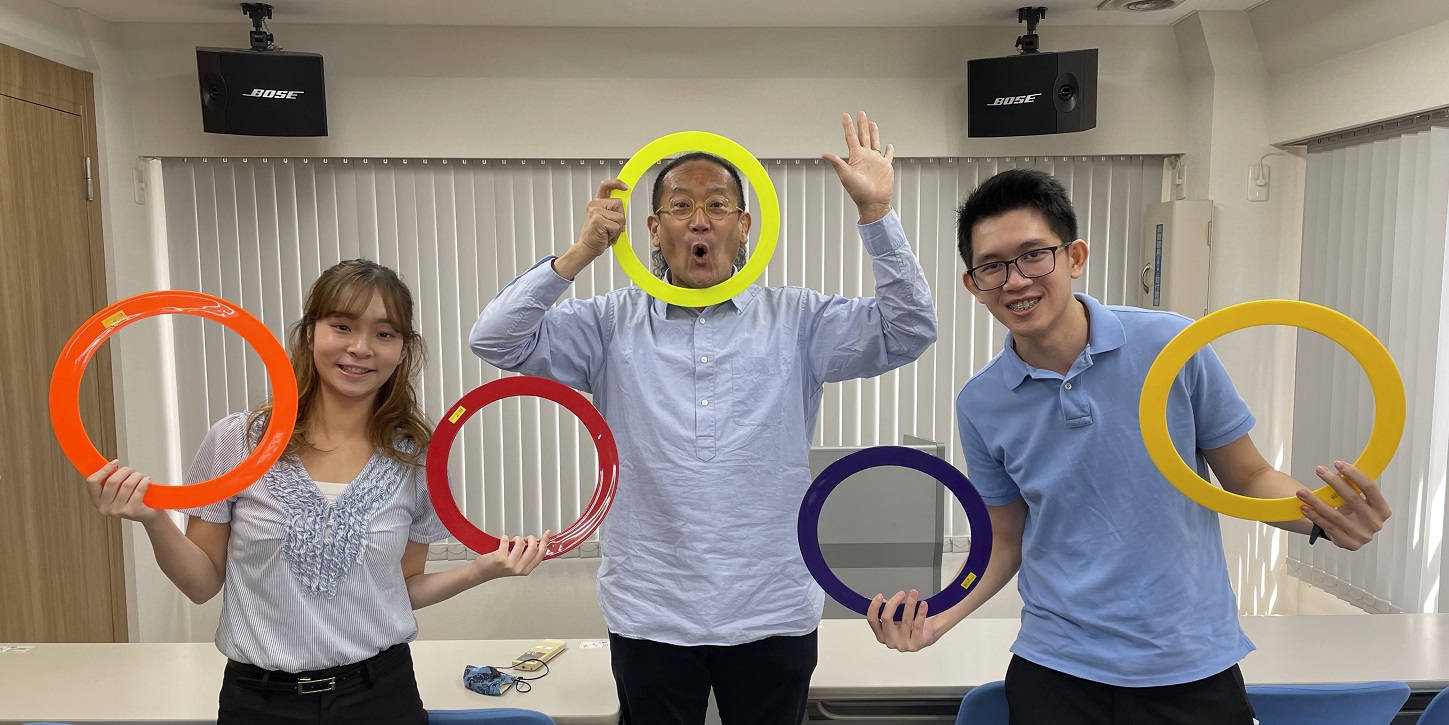
Interviewer Airi Saito, Mr Omune, Assistant Liew Wei Shun
Mr. Omune: Ganbatte kudasai (Do your best)! I would like you to take on challenges and fail a lot. When I visit hospitals, I realize how fortunate I am to be healthy. It is normal for healthy children to play outdoors, but it is a super happy event for the children in hospitals.
I too have a similar experience. I had undergone a couple surgeries when I was a pole-vaulter, so sometimes I would suddenly realize “Wow! I’m able to walk on my feet!”. I do, even now, appreciate that I can walk on my own.
So, I don’t want you to think that the environment you are in right now is “normal”. You are here because your parents have given birth to you and raised you until today. That is not “normal”, having tomorrow is not “normal”, and being able to live in this world is not “normal” too. I want you to treasure your time and use it carefully. By living like this, people around you will rely on you which will also cheer you up to work harder. These experiences help people to improve and get better as a human. To summarize, “Ganbatte!”
